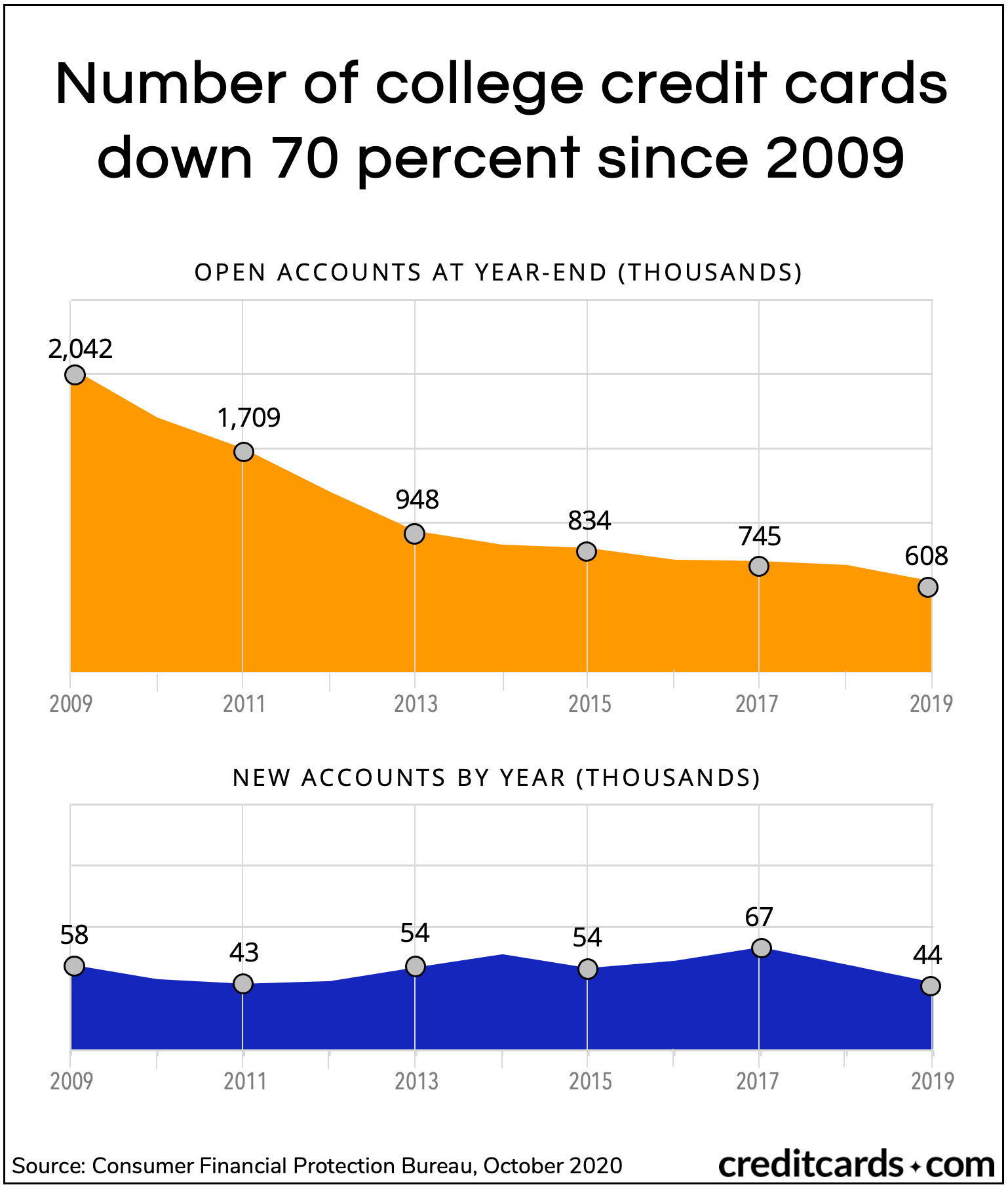Summary
Credit cards marketed to current and past students through their university affiliation are on a substantial decline, with new CFPB figures showing college card accounts down more than two-thirds since 2009.
The content on this page is accurate as of the posting date; however, some of our partner offers may have expired. Please review our list of best credit cards, or use our CardMatch™ tool to find cards matched to your needs.
Credit cards marketed to current and past students through their university affiliation are on a substantial decline, with the latest figures showing college card accounts down more than two-thirds since 2009.

Among the myriad industry changes triggered by the Credit Card Accountability Responsibility and Disclosure (CARD) Act of 2009 is a required report to Congress every year on the status of the college credit card market. These are cards offered through an agreement between a bank or credit union and either an institution of higher education directly or an affiliated entity, such as an alumni association, fraternity or sorority.
The Consumer Financial Protection Bureau has been responsible for preparing this report since 2012, and its recently released 2019 data shows college card accounts down to 608,117. That’s 15% lower than the 715,442 accounts open at the end of 2018.
See related: Best credit cards for young adults
This year’s reading is simply another installment in a 10-year decline, where year-end accounts have contracted every year. At this point, 2019 account numbers are 70% below the 2,041,511 accounts open at the end of 2009, when the CARD Act took effect.
Last year’s 608,117 open accounts were provided by 35 issuers, via 220 higher education agreements. Bank of America is the largest issuer by far, accounting for 69 agreements, or 31%. It’s the only Big Four bank making these agreements, though No. 7 U.S. Bank accounted for 16 agreements in 2019 (7%).
While total year-end accounts have declined annually since 2009, the number of new accounts each year has bobbed up and down, peaking at 67,128 new accounts in 2017. It has dropped two years in a row now, currently registering at 44,006 new accounts in 2019.
The Consumer Financial Protection Bureau’s 2020 College Credit Card Agreements report to Congress was released Oct. 8.
Editorial Disclaimer
The editorial content on this page is based solely on the objective assessment of our writers and is not driven by advertising dollars. It has not been provided or commissioned by the credit card issuers. However, we may receive compensation when you click on links to products from our partners.



